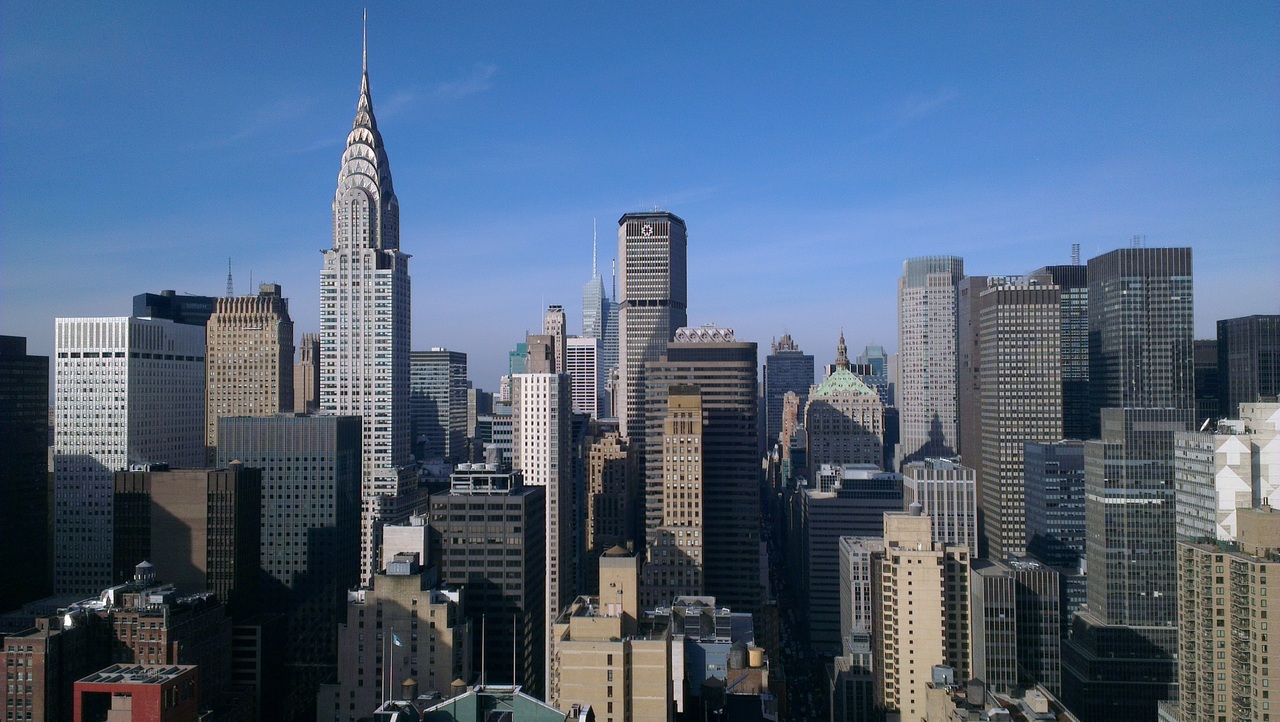Skift Take
Airbnb and New York City have had many twists and turns in their dealings over the last decade, and here's a list of the major events in their often rocky relationship.
Airbnb and New York City have often had a tough relationship, one marked by lawsuits and other disputes. Airbnb has argued that New York City’s regulations have hurt its ability to do business, which the company believes will become more challenging when the city starts enforcing its host registration law regarding short-term rentals on September 5.
The back and forth goes back at least 10 years as seen in the timeline below. We used Ask Skift, our AI tool that relies on our own past reporting, and added additional reporting as well.
October 2013: New York State Attorney General Subpoenas Airbnb User Records
New York Attorney General Eric Schneiderman subpoenaed user records from Airbnb as part of an investigation into hosts that violate the state’s short-term rental laws. Airbnb issued a statement saying it would not cooperate with the subpoena.
David Hantman, Airbnb’s head of public policy, argued on the company’s blog that “the vast majority of these hosts are everyday New Yorkers who occasionally share the home in which they live.” Skift reported that Airbnb contested that most rentals on the platform aren’t with those hosts but with those who manage properties for others or from landlords that illegally taken their units off the market.
February 2014: Two-Thirds of Airbnb’s New York City Listings Are Illegal
Airbnb told Schneiderman that compiling data about its hosts and occupancy levels was too burdensome. So Skift turned to data extraction and monitoring firm Connotate to gather detailed information about hosts in New York City.
Connotate’s research found that roughly two-thirds of Airbnb’s New York City listings were breaking the law. Skift had reported the previous year that at least half of those listings were illegal.
May 2014: Judge Rules Airbnb’s Subpoena is Too Broad
Judge Gerald W. Connolly ruled that Schneiderman’s subpoena for Airbnb user data was too broad and the company’s request to quash it would be granted. Schneiderman’s office said in response it would be reissuing a subpoena to address what it described “a narrow technical issue.”
January 2015: New York City Holds Discussions About Short-Term Industry
The New York City Council held a nearly eight-hour hearing to discuss the state-term rentals in the city, which attracted both representatives from Airbnb and critics of the platform. Airbnb said it wanted to see the state change a law that makes it illegal to rent an entire apartment for less than 30 days in a month in New York City.
Skift reported that multiple studies have shown most activity on Airbnb in New York City involves the host breaking that state law.
November 2015: New York City to Spend $10 Million to Regulate Airbnb and Hotels
New York City unveiled plans to spend $10 million over three years to help crack down on illegal hotels and rentals in the city. That funding went to the the Mayor’s Office of Special Enforcement, which targets illegal short-term rentals and hotels. The money was designed to help gather data to find illegal operators and launch a public awareness campaign.
June 2016: New York Passes Advertising Law Against Airbnb’s Wishes
Legislators in Albany passed a law that would heavily fine hosts on Airbnb and other short-term rental sites for listing rentals that violate New York’s short-term rental laws. The law would penalize offenders up to $1,000 for the first violation, $5,000 for the second and $7,500 for the third and subsequent violations.
Skift reported the state government was aiming to restrict the advertising of the vast majority of full-unit rentals for less than 30 days in New York City. Airbnb had published a statement on its political action blog calling on state lawmakers not to support the bill.
October 2016: Governor Cuomo Signs Bill Aimed at Illegal Short-Term Rentals
Governor Andrew Cuomo signed a bill designed to crack down on both illegal short-term rentals and hotels in both New York City and throughout the state. The new law heavily fined hosts on Airbnb and other short-term rental sites that posted listings that violate New York State’s short-term rental regulations.
However, the law didn’t change New York’s Multiple Dwelling Law, which Skift reported was largely ignored by Airbnb and its rivals. The law banned most apartments — buildings with three or more units — in New York from being rented out for less than 30 days per month.
July 2018: New York City Requires Airbnb to Disclose Data on Hosts
The New York City Council voted unanimously to require Airbnb and other short-term rental providers to provide detailed data on its hosts and listings to the city’s Office of Special Enforcement. Those companies were subject to fines up to $1,500 for each listing they don’t disclose.
August 2018: Airbnb Sues New York City
Airbnb filed a lawsuit over New York City’s law passed the previous month requiring it and other home-sharing to companies to disclose hosts’ names and addresses with the city on a monthly basis. Airbnb argued in its suit that the law violated its users’ privacy and constitutional rights.
January 2019: Judge Blocks New York City Law Requiring Airbnb to Disclose User Data
Airbnb won a preliminary ruling blocking New York City’s demand for data on the company’s hosts. U.S. District Judge Paul Engelmayer wrote that the new law requiring Airbnb to turn over hosts’ information should not go into effect because it potentially violates the Fourth Amendment protecting against unlawful search or seizure.
June 2020: New York City and Airbnb Reach Settlement
Airbnb and New York City reached a settlement in which the Airbnb agreed to provide the city with host information such as names, addresses, phone numbers and email addresses. Skift reported that if Airbnb hosts don’t consent to sending data, they would be barred from listing their properties on the platform.
The revised ordinance went into effect in January 2021.
March 2023: New York City Adds 2,300 Short-Term Rentals to its Prohibited Buildings List
New York City took steps to clamp down on illegal short-term rentals prior to a July deadline when the city would levy fines against both hosts and short-rental providers for non-compliance. The city opened a host application process and enabled landlords and apartment numbers to apply to put their properties on a Prohibited Buildings List. This meant the landlords would inform the city that any rentals in the building are prohibited.
June 2023: Airbnb Sues New York City Again
Airbnb filed a lawsuit against New York City over measures it described as a “de facto ban” against short-term rentals that were set to go into effect in July. [The deadline was subsequently extended to September 5.] The company argued the law, which requires hosts to register with the New York City Mayor’s Office of Special Enforcement, would make it more difficult for hosts to do business.
August 2023: Judge Dismisses Airbnb Lawsuit to Block NYC Short-Term Registration Requirements
Justice Arlene Bluth threw out Airbnb’s lawsuit against New York City, stating it was “inherently rational” to mandate host register with a local agency as part of its effort to reduce the number of illegal short-term rental listings.
Bluth also said requiring Airbnb to verify potential listings was a “very simple way” to ensure it was no longer profiting from unlawful activity.
NYC Is Behind on Approving Short-Term Rental Registrations
New York City’s Office of Special Enforcement told Skift on August 28 it had only approved 257 short-term rental host registrations — out of 3,250 applications — ahead of the September 5 enforcement deadline. The figures the OSE supplied meant it had only reviewed about 25% of the host applications submitted up to that point.
Airbnb Faces Sharp Decrease in NYC Listings
Skift reported that thousands of Airbnb listings could be at risk starting September 5, the date when New York City authorities said they would begin to enforce the city’s host registration law for short-term rentals. Airbnb said it turned off calendars for stays starting September 5 with unregistered hosts, although Executive Editor Dennis Schaal reports the city may not rigorously enforce the new rules in their early days.
NYC Approves Less Than a Quarter of Short-Term Rental Applications
Amid Airbnb’s claims that New York City hasn’t delivered on the benefits it promised to residents, Skift reported that New York City’s Office of Special Enforcement has only approved 22% of applications from potential short-term rental hosts. The office has returned more than half of applications to get more information or to obtain corrections.
Common reasons for rejections are applicants living in public housing or rent regulated apartments, where short-term rentals are banned.
The Daily Newsletter
Our daily coverage of the global travel industry. Written by editors and analysts from across Skift’s brands.
Have a confidential tip for Skift? Get in touch
Photo credit: Airbnb executives and New York City officials have had far from the smoothest relationship over the past decade. PxHere

